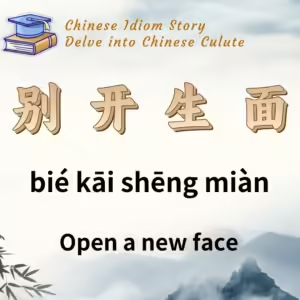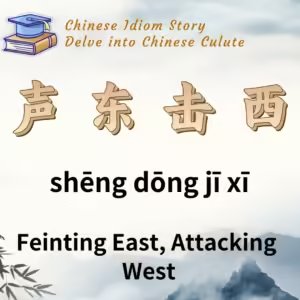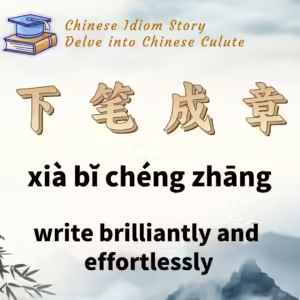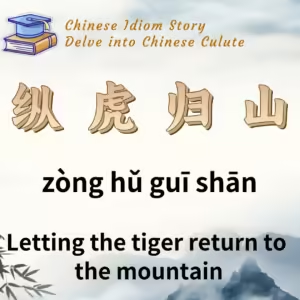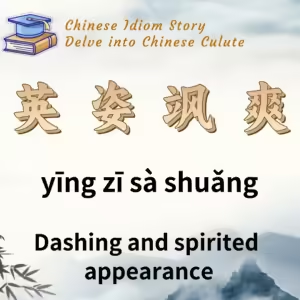
Chinese Idiom: 英姿飒爽 (Ying Zi Sa Shuang)
English Translation: Dashing and spirited appearance
pīn yīn: yīng zī sà shuǎng
Idiom Meaning: This phrase is used to describe someone who possesses a majestic, elegant, and vigorous demeanor, often associated with martial prowess or charisma.
Historical Source: From Du Fu’s poem Danqing Yin Zeng Cao Jiangjun Ba (丹青引赠曹将军霸) during the Tang Dynasty.
Idiom Story:
In 759 AD, after years of hardship and turmoil, the poet Du Fu, accompanied by his family, traveled from Qinzhou (present-day Tianshui, Gansu) to Tonggu, eventually settling in Chengdu. At that time, Sichuan had not yet experienced the ravages of war, and Chengdu was relatively peaceful and prosperous. This contrast allowed Du Fu to find a degree of solace, alleviating some of the deep-seated sorrow he had carried for years.
While in Chengdu, with the help of his cousin, who served as a Sima, Du Fu cultivated a plot of land by the Huahuaxi River and built a modest thatched cottage. Surrounded by peach, plum, and orange trees gifted by friends, he began a new life in this beautiful landscape that resembled the scenic Jiangnan region. The vibrant spring colors, with green wheat fields, golden rapeseed flowers, lotus ponds, and weeping willows, inspired Du Fu to write many beautiful poems, reflecting the joy he found in this tranquil setting.
During this period, Du Fu mingled with various literary figures who had fled to Chengdu. Around 764 AD, he wrote a poem dedicated to the renowned painter Cao Ba, who had once held the title of General of the Left Imperial Guard during the reign of Emperor Xuanzong. Despite his artistic acclaim, Cao had fallen from grace and was reduced to commoner status.
In the poem, Du Fu praised not only Cao’s artistic skill but also his character. The second stanza of the poem describes Cao’s artistic endeavors:
“In the Kaiyuan era, he was frequently summoned to the Southern Xuindian Hall.
The colors of the portraits of the founding generals on the Lingyan Pavilion have faded.
The general’s brushwork brings forth vibrant life anew.
The virtuous officials wear their caps of worth,
while valiant generals bear their great arrows.
The expressions of General Duan Zhixuan and General Yuchi Jingde are mighty and solemn,
as if they are engaged in fierce battle.”
This stanza reflects Cao Ba’s talent for revitalizing the faded portraits of celebrated military figures, capturing their noble spirit and valor. The phrase “英姿飒爽来酣战” describes the impressive and dignified demeanor of these generals as if they were ready for battle.
As a result, the phrase “英姿飒爽” has come to signify someone with a spirited and striking presence, embodying elegance and authority.

